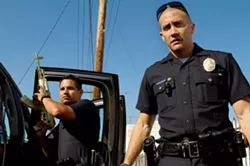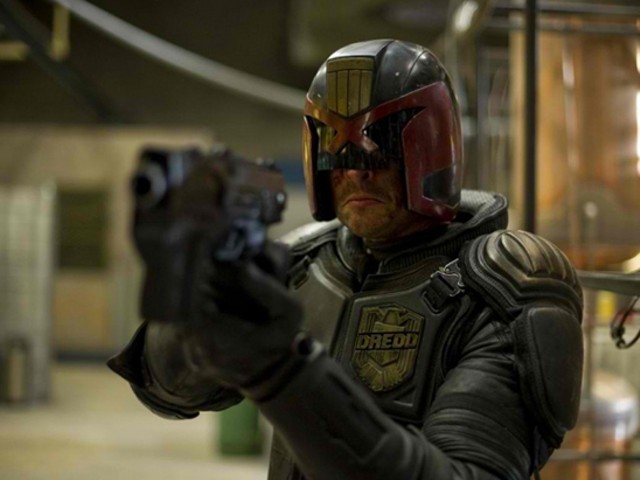End of Watch| B
If you can get past the now-overdone shaky-cam found-footage conceit, writer-director David Ayer's End of Watch is a fresh and aggressive take on the buddy cop formula, one that actually depicts three-dimensional characters in a relationship you care about.
Opening with dashboard cam view of a police chase that ends in a deadly shoot-out, the movie is an episodic series of supposedly workaday calls that, more often than not, turn out to be horrifying, dangerous or tense situations. Criminally neglectful parents, menacing drug dealers, human traffickers, even a house fire are captured in immediate, Call of Duty-like first-person shooter scenarios. Each packs a jolting, visceral punch.
In between, we're treated to the intimate camaraderie of partners Brian Taylor (Jake Gyllenhaal) and Mike Zavala (Michael Pena), who joke, bitch and candidly confide in each other. Most importantly, they have each others' backs, as each takes risks most cops would shy away from. Taylor is single, an Afghanistan vet who is videotaping his work life for a college filmmaking course, and courting a biochemist (Anna Kendrick). Zavala is married with kids, dispensing advice about domestic bliss even as he recklessly jumps into harm's way. Together their bluster and irreverence earns them the enmity of a veteran officer (David Harbour) and the criticisms of a pair of by-the-book female cops (America Ferrera and Cody Horn).
Threaded alongside the police procedural is a parallel story involving a violent gang of young drug dealers, who are also capturing their exploits on video. Incited by a Mexican cartel to target Taylor and Zavala, these trigger-happy thugs set up a confrontation that propels End of Watch into its final act and brings the forces of law and lawlessness together.
Given that Ayer's screenwriting career has been built on corrupt cop stories (Training Day, Street Kings, Harsh Times, Deep Blue), this gritty ode to everyday heroes could almost be viewed as an apologia to L.A.'s men in blue. Though Ayer's narrative rhythm is little more than an alternating dance of action and reprieve, End of Watch earns a helluva lot of goodwill through the incredible chemistry of Gyllenhaal and Pena. We get to know both characters and, most especially, their deep friendship. It's sincere, darkly hilarious and frequently engrossing, aided by the cast's naturalness with one another. The bro-factor may be high, but there's no denying that the infectious nature of Taylor and Zavala's relationships drives the core of the film.
Less successful are End of Watch's violent cartoon villains. Though Ayer spaces his story out over the course of a year (you have to remind yourself that time is actually passing), building to a final and tragic instance of mayhem, the two-dimensional psychopathic approach undermines the illusion of authenticity he's so carefully constructed.
If you're looking for social insight or depth, End of Watch will leave you wanting. But as nerve-jangling entertainment that's filled with great dialogue and a pair of highly appealing protagonists, this blood-soaked love letter to L.A. cops delivers the goods.






